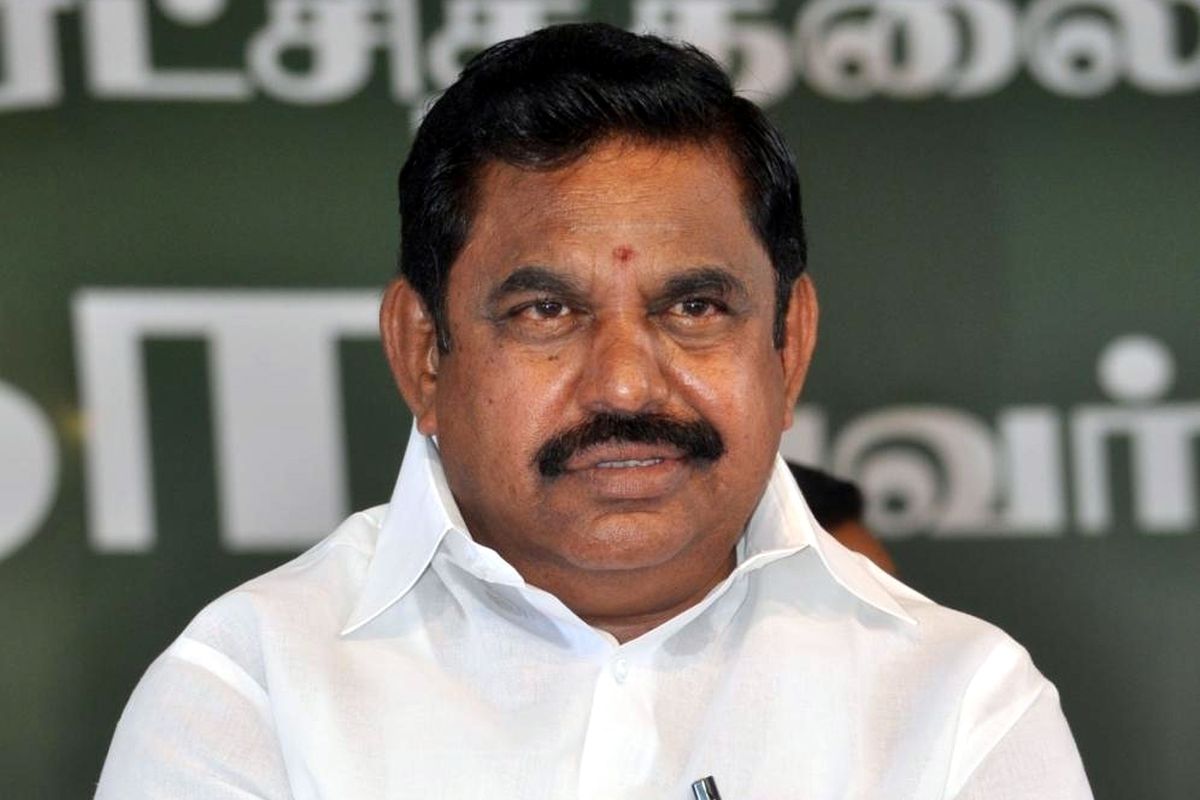Pitch for TN
Amidst the kaleidoscope of Tamil Nadu’s political landscape, the Bharatiya Janata Party (BJP) finds itself entangled in a complex web of identity, ideology, and electoral aspirations.
Having acquiesced to the Centre’s proposal to set up 489 hydrocarbon wells and petrochemical industries in the Cauvery delta region, the rice bowl of south India, and prosecuting farmers for protesting against the move, he declared the region an “ecologically sensitive agricultural zone” on 10 February.

K Palaniswami. (File Photo: IANS)
Strange are the ways of the AIADMK government of Eddapadi Palaniswamy in Tamil Nadu. He wants to eat the cake and keep it too. Having acquiesced to the Centre’s proposal to set up 489 hydrocarbon wells and petrochemical industries in the Cauvery delta region, the rice bowl of south India, and prosecuting farmers for protesting against the move, he declared the region an “ecologically sensitive agricultural zone” on 10 February.
A couple of days later, he welcomed a delegation from Haldia for establishing a Rs 50,000-crore petrochemical complex at Cuddalore which comes under the protected agriculture zone. The Narendra Modi government has exempted hydrocarbon exploration projects from holding public hearings and obtaining environmental clearances, paving the way for digging of new wells by public sector ONGC and private sector Vedanta engaged in hydrocarbon exploration. Without any hindrance.
Meanwhile, in a letter to Union environment minister Prakash Javadekar, the Chief Minister said, “The negative aspect of hydrocarbon projects outweigh the advantages claimed by the projects and adversely impact health and habitat in a densely populated agrarian belt.” The delta region not only meets the foodgrain requirement of the State and neighbouring Kerala, but is also famous for archaeological and cultural heritage. World famous monuments like the Brihadeshwarar temple of Thanjavur, Velankani Basilica and the Nagore Dargah are located in this region.
Advertisement
The government says declaration of the area as “Protected Agricultural Zone” will not affect ongoing projects, including hydrocarbon exploration. With the ongoing projects, the Cauvery delta region will cease to be the major source of food for Tamil Nadu. The dispute over sharing of the Cauvery river water, indiscriminate sand mining of the river bed and creeping real estate development had made farmers increasingly rely on groundwater. Contamination of groundwater after hydrocarbon extraction has greatly affected agricultural output.
Climate change has led to rising sea level. According to a study made by Professor S Janakarajan of Madras Institute of Development Studies, the vacuum caused by hydrocarbon extraction has led to seawater intrusion in several places in Nagapattinum, one of the eight delta districts. If not arrested, the entire district could sink in the not too distant future. Climate change has made the world turn away from hydrocarbon extraction, particularly by non-conventional methods like hydraulic fracking which requires enormous quantity of water and use of deadly chemicals.
Permission given to new hydrocarbon extraction has not banned non-conventional methods which means fracking, one of the worst pollutants of the soil. If the Tamil Nadu government is serious about safeguarding farmer’s interests in the Cauvery delta region, mere declaration of the area as protected agricultural zone is not enough. It should be followed up by suitable legislation.
Advertisement